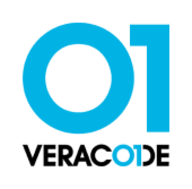

Veracode and SonarQube Server compete in the code analysis and security domain. Veracode appears to have an edge due to its advanced scanning capabilities and comprehensive language support, while SonarQube excels in customizable dashboards and continuous code quality checks.
Features: Veracode includes SAST, DAST, and software composition analysis, allowing users to detect vulnerabilities comprehensively. It supports static and dynamic analysis, integrates seamlessly with development pipelines, and is suitable for various programming languages. SonarQube Server provides customizable dashboards, code quality checks, and supports multiple languages, enabling teams to address code issues with precision. It offers plugins and focuses on continuous code inspection and quality.
Room for Improvement: Veracode users seek improvements in reducing false positives, faster scan times, extended language support, and a more intuitive interface. SonarQube Server needs better security vulnerability support, improved tool integrations, and enhanced language support. Users require greater sensitivity in detecting vulnerabilities and better tuning of false positives.
Ease of Deployment and Customer Service: Veracode provides cloud-based solutions for public, private, and hybrid cloud deployments, praised for flexibility and fast scans. Its customer service receives good reviews for being knowledgeable and responsive, although faster response times are desired. SonarQube Server is ideal for on-premises deployments, favored by teams managing self-hosted environments. The open-source nature allows wide configuration, though improvements in technical support for integration and security use are needed.
Pricing and ROI: Veracode's extensive security features and scalability justify its higher price, offering significant ROI by improving security and reducing vulnerabilities. Customers find it valuable for mitigating security risks. SonarQube Server is cost-effective, with a robust free version and paid plugins for added functionality, appealing to users through its open-source nature and cost efficiency for large code bases requiring quality checks.
The scanners of Veracode bring status of the weaknesses in the current infrastructure. It scans and provides reports regarding the servers, the network, and the applications running on those servers.
The community support is quite effective.
They are very responsive and quick to help with queries within our scope.
They respond very quickly since security is something critical.
Cloud solutions are easier to scale than on-premise solutions.
If it could be integrated directly with code repositories such as Bitbucket or GitHub, without the need to create a pipeline to upload and decode code, it would simplify the code scan process significantly.
Veracode can improve the licensing model as it is a bit confusing.
Maybe the boards could be made easier to understand or easier to customize.
The freemium version of SonarQube Server offers excellent value, especially compared to the high costs of Snyk.
It's not the most expensive solution.
If there's a security gap, you'll never know the cost or effect.
The pricing and model align with the needs of the developer community and the cybersecurity office.
Some of the static code analysis capabilities are the most beneficial.
Veracode provides visibility into application status at every phase of development, including static analysis.
It offers confidence by preventing exposure to vulnerabilities and helps ensure that we are not deploying vulnerable code into production.
The flexibility to define rules and the ability to update those rules on the fly are valuable features.


SonarQube Server enhances code quality and security via static code analysis. It detects vulnerabilities, improves standards, and reduces technical debt, integrating into CI/CD pipelines.
SonarQube Server is a comprehensive tool for enhancing code quality and security. It offers static code analysis to identify vulnerabilities, improve coding standards, and reduce technical debt. By integrating into CI/CD pipelines, it provides automated checks for adherence to best practices. Organizations use it for code inspection, security testing, and compliance, ensuring development environments with better maintainability and fewer issues.
What are the key features of SonarQube Server?Many industries implement SonarQube Server to uphold coding standards, maintain security protocols, and streamline their software development lifecycle. In sectors like finance and healthcare, adhering to regulations and ensuring reliable software is critical, making SonarQube Server invaluable. It is often integrated into CI/CD pipelines, ensuring that code changes meet set standards before deployment. This approach enhances productivity and maintains compliance with industry-specific requirements.
Veracode is a leading provider of application security solutions, offering tools to identify, mitigate, and prevent vulnerabilities across the software development lifecycle. Its cloud-based platform integrates security into DevOps workflows, helping organizations ensure that their code remains secure and compliant with industry standards.
Veracode supports multiple application security testing types, including static analysis (SAST), dynamic analysis (DAST), software composition analysis (SCA), and manual penetration testing. These tools are designed to help developers detect vulnerabilities early in development while maintaining speed in deployment. Veracode also emphasizes scalability, offering features for enterprises that manage a large number of applications across different teams. Its robust reporting and analytics capabilities allow organizations to continuously monitor their security posture and track progress toward remediation.
What are the key features of Veracode?
What benefits should users consider in Veracode reviews?
Veracode is widely adopted in industries like finance, healthcare, and government, where compliance and security are critical. It helps these organizations maintain strict security standards while enabling rapid development through its integration with Agile and DevOps methodologies.
Veracode helps businesses secure their applications efficiently, ensuring they can deliver safe and compliant software at scale.
We monitor all Application Security Tools reviews to prevent fraudulent reviews and keep review quality high. We do not post reviews by company employees or direct competitors. We validate each review for authenticity via cross-reference with LinkedIn, and personal follow-up with the reviewer when necessary.